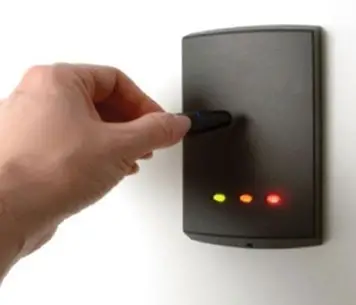Security is a vital concern for any property owner, but the type of security system you need can vary greatly depending on whether you’re protecting a home or a business. At Panther Security in Colchester, we understand that while the principles of security remain the same, the requirements and solutions for residential and commercial properties can be quite different. In this blog, we’ll explore the key differences between residential and commercial security systems, helping you make an informed decision when choosing the right solution for your property.
1. Size and Scope of Coverage
Residential security systems are generally designed to cover smaller areas, focusing on protecting the home and its immediate surroundings. Typically, this includes doors, windows, and sometimes a garden or driveway. Home security systems are often more straightforward and can be tailored to suit the specific needs of the household.
Commercial security systems, on the other hand, are designed to cover much larger areas. Whether it’s a small retail shop or a large industrial facility, businesses often require comprehensive coverage. This could include multiple floors, entry points, stockrooms, warehouses, and car parks. Commercial systems are often more complex and scalable to accommodate the unique layout and size of a business premises.
2. Types of Equipment
While both residential and commercial systems share common equipment like CCTV cameras, motion detectors, and alarm systems, the type and robustness of the equipment can differ. Residential systems tend to use simpler technology designed for ease of use. Many home systems now integrate with smart home technology, allowing homeowners to control their security via mobile apps.
In contrast, commercial systems often utilise more advanced technology to cater for the higher risks businesses face. For example, CCTV systems in a commercial setting may offer high-definition (HD) or even ultra-high-definition (UHD) resolution, with advanced features such as thermal imaging and facial recognition. Additionally, access control systems, like keycard or biometric entry, are more commonly used in businesses to control and monitor who enters specific areas of the building.
3. Monitoring and Response
Residential security systems typically offer optional 24/7 monitoring, where the system is connected to a monitoring centre. In case of a break-in, the homeowner can be alerted, and emergency services notified. Many homeowners opt for systems that also integrate with mobile alerts, allowing them to respond quickly.
For commercial properties, monitoring often plays a more crucial role. Businesses frequently require more advanced monitoring solutions, such as video surveillance that is continuously monitored by professional security personnel. Commercial properties often employ systems that immediately notify on-site security teams or third-party security services of any breach, ensuring a swift response to potential threats.
4. Regulations and Compliance
In the UK, residential security systems are subject to fewer regulations compared to their commercial counterparts. Homeowners generally have the freedom to install systems as they see fit, provided they do not infringe on neighbours’ privacy or violate data protection laws (such as the GDPR, if cameras cover areas beyond their own property).
Commercial security systems, however, must adhere to stricter regulations. Business owners are required to comply with laws such as the Data Protection Act 2018 and the GDPR, especially if they are collecting surveillance data. Commercial premises must ensure that CCTV systems are placed appropriately, and employees must be informed if they are being monitored. In certain industries, there may also be specific industry-related regulations that businesses must follow to ensure they meet safety and security standards.
5. Cost and Installation
Residential security systems are generally less expensive and easier to install. Many homeowners now opt for DIY installations, which can be completed in a matter of hours. Professional installation is also available for more complex setups but typically remains affordable due to the smaller scale of residential properties.
Commercial security systems, by contrast, can be a significant investment. Given the larger scope and complexity of these systems, businesses often require a professional installation to ensure everything is compliant with regulations and optimised for maximum security. These systems are often customised to meet the specific needs of the business, which can include complex CCTV setups, advanced access control, and integrated fire safety systems.
6. Maintenance and Upkeep
Home security systems typically require minimal maintenance. Most systems are designed to be self-sufficient, and routine upkeep may involve changing batteries or performing simple checks.
Commercial security systems, however, often require more regular maintenance. Businesses are legally obliged to ensure their security systems are in working order, particularly if the system is tied to insurance policies or health and safety regulations. Regular inspections, testing, and upgrades may be necessary to maintain the integrity of the system.
Conclusion
While both residential and commercial security systems aim to protect people and property, the scale, complexity, and regulatory demands differ significantly. At Panther Security, we specialise in designing and installing tailored security solutions for both homes and businesses, ensuring you get the best protection, whatever your needs. Whether you’re a homeowner looking for peace of mind or a business owner seeking comprehensive protection, our team in Colchester is here to help.

